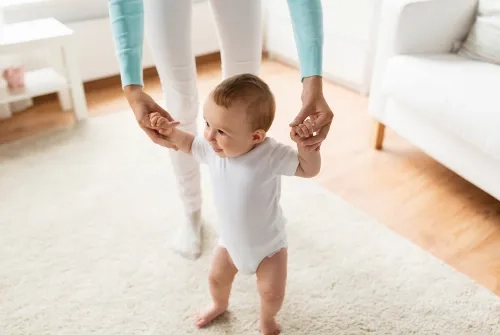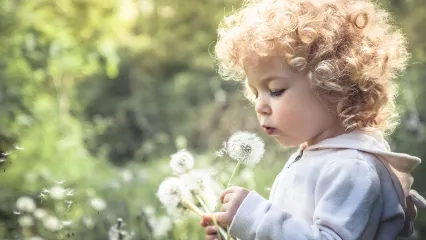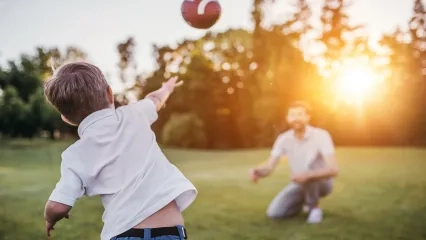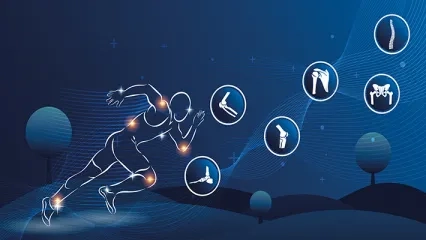Alo Yeditepe
Alo Yeditepe
Have Your Baby Take Their First Steps in Good Health
Specialists agree that you should care about your baby's orthopedic development before looking stylish.
The foot structure of babies is quite different from adults. The part towards the toes is wider, the heel is narrower, and the inside of the sole is filled with fatty tissue that gives the soles a flat appearance but disappears as the arch widens with movement. The bones of the baby's feet are made of cartilage. Therefore, choosing tight and inappropriate shoes may prevent the bones from growing properly. Stating that the feet of babies show rapid development in the first 5 years from birth, Yeditepe University Koşuyolu Hospital Orthopedics and Traumatology Specialist Prof. Dr. Gökhan Meriç emphasized that great care should be taken when choosing shoes for babies and gave important warnings...
Do not Rush for the First Shoe
Parents cannot wait to buy their children their first pair of shoes, but children do not need shoes until they can walk on their own. Therefore, it is better to buy shoes after the child starts walking. Children should not be fitted with shoes before they start walking. Even then, shoes can be kept, at least at first, only for walking outside. At home, it is sufficient for the baby to wear socks and booties. This ensures normal growth of the feet, healthy muscle development, and the development of the gripping ability of the fingers. It is also important that shoes and socks are the right sizes.
Looking Stylish Should Not Be A Priority
The first point to consider when buying shoes for babies should not be stylish or cute shoes but support the orthopedic development of the baby and protect from foot jaundice. Generally, shoes with laces, a buckle or hook, and a loop should be preferred. This type of shoe keeps the heel in place and prevents the foot from sliding forward and damaging the toes.
If possible, shoes made of natural materials such as leather, cotton, or canvas should be preferred as they allow air to circulate. Plastic shoes make feet sweat and can cause fungal infections. Shoes should be worn with cotton socks and the soles of the shoes should be soft. Hard and thick soles can prevent the baby from walking correctly.
Choosing the Wrong Shoe...
Commonly used plastic shoes, shoes that do not grip the child's feet sufficiently can negatively affect the foot health of babies. Falls of toddlers can cause different injuries. Therefore, the soles of the shoes should be neither slippery nor very gripping.
Hard, supported shoes should not be preferred because they are not suitable for babies. They restrict the mobility of the feet. Most small foot problems in children improve over time. However, if you are still concerned about your child's foot structure, you should consult an orthopedist.
When your baby is at home, it is sufficient to wear socks and booties. This ensures normal growth of the feet, healthy muscle development, and the development of the gripping ability of the fingers.
This content was prepared by Yeditepe University Hospitals Medical Editorial Board.
”
See Also
- Robotic Hip Replacement Surgery
- Knuckle Cracking Can Be Dangerous When It Becomes a Habit!
- What is Hallux Rigidus (Stiff Big Toe/Toe Arthritis)? Symptoms and Treatment
- What is Hallux Valgus (Bunion)? How is it Treated?
- Meniscus and Cartilage Transplantation Can Be Done at the Same Time
- Ergonomics in Automobiles Prevents Accidents
- Joint Pain and Causes of Joint Pain
- Walking and Returning to Social Life After Knee Replacement Surgery
- Robotic Knee Prosthesis Surgery
- Patients Who Undergo Joint Replacement Surgery Can Stand Up and Walk the Next Day
- Big Toes Can Be A Big Problem!
- What is Synovitis in Joints?
- Hip Impingement Syndrome
- What is the Future of Treating Cartilage Problems?
- Not Only Athletes Suffer from Meniscus Tears!
- Is Cartilage Damage More Common in Those Who Run for Long Periods?
- Beware If Your Shoulder Or Neck Pain Lasts Longer Than Two Days After Swimming!
- Mistakes While Swimming Can Cause Shoulder Pain
- Myths About Fractures
- Vitamin D Deficiency May Be The Cause Of Your Joint Pain
- Heavy School Bags Can Cause Pain in the Lower Back, Shoulders, and Hands!
- Sports Injuries
- Cartilage Transplantation from Donor Has Been Started to Perform in Turkey
- Working From Home Increases Waist and Neck Problems
- First Cartilage Transplant from a Donor
- Pay Attention to the Pain That Occurs in the Front Part of Your Knees While Playing Sports!
- Young Patient Who Could Not Walk Due to Cartilage Damage Recovered With Cartilage Transplantation
- Knee Arthritis
- Knee Pain
- Crunching in the Kneecap May Be a Sign of Calcification
- Injured Athletes Can Return To Sports With Cartilage Transplant
Alo Yeditepe










